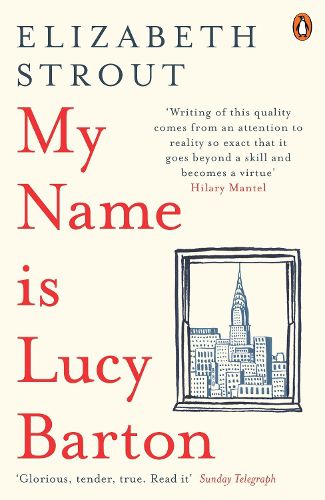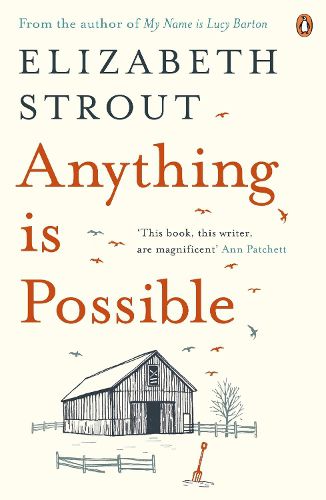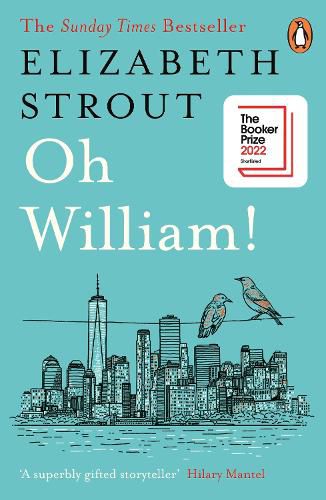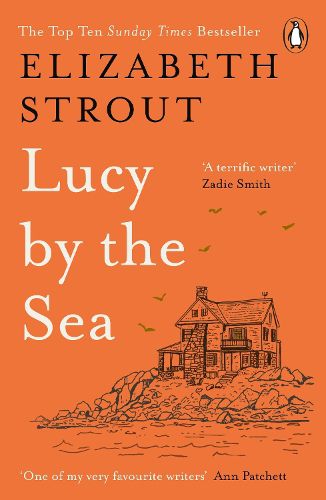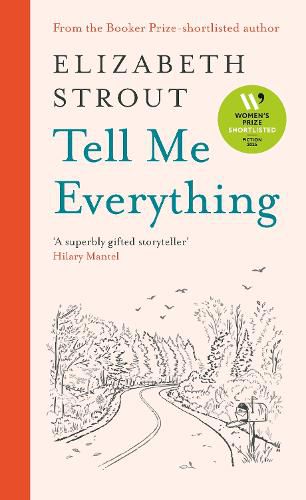On Elizabeth Strout’s website is this quote:
"We want to know, I think, what it is like to be another person, because somehow this helps us position our own self in the world. What are we without this curiosity?"
Elizabeth Strout’s many novels are filled with this curiosity, this empathetic approach to humanity that is both refreshing and comforting to me. She has created a village made up with people that I could be friends with, and those that I immediately would not like. What makes each of her novel’s work is her ability to supply a narrator that yes, is of course unreliable – they are works of fiction after all – but each work also holds a moral compass that I trust implicitly. I know that the storyteller of each of her novels is thinking about how to be better in the world; there is freedom in reading her work because of this one clear overriding theme. Elizabeth Strout’s characters are all trying their best.
Strout's 10th book, Tell Me Everything, is coming out on September 10th, and while you don't need to read any of her other books first, her body of work is too delightful to only read one. But if you have not read any of her work before, well, where do you start? Should you begin with her first novel, or her collection of edited work? Do you begin with Olive Kitteridge, winner of the Pulitzer Prize for Fiction? Or do you decide to trust me and to hold hands with Lucy Barton, and surrender yourself to her views?
Of course you can read the books in any order that you like, and each novel is its own entity, but if I was standing amongst the bookshelves with you right now, I would recommend you follow the list below. It is my perfect reading order for you to enjoy Strout, and discover her corner of Maine.
First: My Name is Lucy Barton
Lucy is recovering from an operation in a New York hospital when she wakes to find her estranged mother sitting by her bed. They have not seen one another in years. As they talk Lucy finds herself recalling her troubled rural childhood and how it was she eventually fetched up in the big city, got married and had kids.
But this unexpected visit leaves her doubting the life she’s made: wondering what is lost and what has yet to be found.
Second: Anything is Possible
Anything is Possible tells the story of the inhabitants of rural, dusty Amgash, Illinois, the hometown of Lucy Barton, a successful New York writer who finally returns, after seventeen years of absence, to visit the siblings she left behind.
Reverberating with the deep bonds of family, and the hope that comes with reconciliation, Anything is Possible again underscores Elizabeth Strout’s place as one of America’s most respected and cherished authors.
Third: Oh William!
Lucy Barton is a successful writer living in New York, navigating the second half of her life as a recent widow and parent to two adult daughters. A surprise encounter leads her to reconnect with William, her first husband – and longtime, on-again-off-again friend and confidante.
Recalling their college years, the birth of their daughters, the painful dissolution of their marriage, and the lives they built with other people, Strout weaves a portrait, stunning in its subtlety, of a decades-long partnership.
Fourth: Lucy by the Sea
In March 2020, Lucy's ex-husband William pleads with her to leave New York and escape to a coastal house he has rented in Maine. Lucy reluctantly agrees, leaving the washing-up in the sink, expecting to be back in a week or two. Weeks turn into months, and it's just Lucy, William, and their complex past together in a little house nestled against the sea.
Rich with empathy and a searing clarity, Lucy by the Sea evokes the fragility and uncertainty of the recent past, as well as the possibilities that those long, quiet days can inspire.
Fifth: Tell Me Everything
It's autumn in Maine, and the town lawyer Bob Burgess has become enmeshed in an unfolding murder investigation, defending a lonely, isolated man accused of killing his mother. He has also fallen into a deep and abiding friendship with the acclaimed writer, Lucy Barton, who lives nearby in a house next to the sea. Together, Lucy and Bob talk about their lives, their hopes and regrets, and what might have been. Lucy, meanwhile, befriends one of Crosby's longest inhabitants, Olive Kitteridge, now living in a retirement community on the edge of town. They spend afternoons together in Olive's apartment, telling each other stories. Stories about people they have known – 'unrecorded lives', Olive calls them – reanimating them, and, in the process, imbuing their lives with meaning.
You can reach for Olive when you need a character with a pragmatic approach to life; or perhaps you need a Bob in your life, with his big clumsy heart. These people are waiting for you another time. But for now, welcome Lucy into your home. Her kindness and her astute creativity will take you through our own winter wilds.


